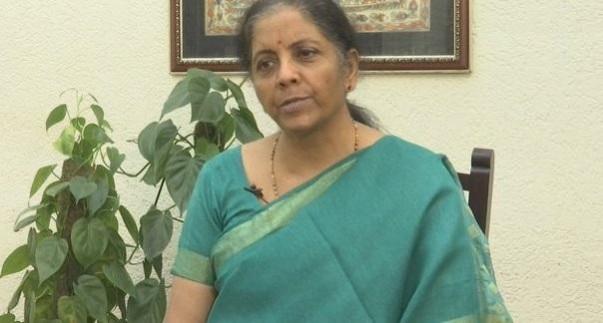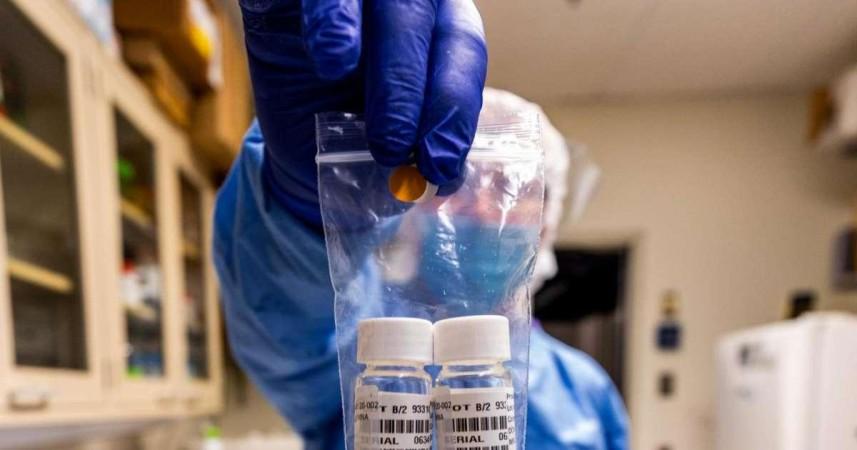Amid a pandemic and unprecedented circumstances , Finance Minister Nirmala Sitharaman on Monday presented the first paperless budget, first in India's history, reading it out on a Made-in-India tablet in Parliament.
The Finance Minister said that the budget, this year, is one of the most significant ones as it has come during the time of the Covid-19 pandemic which has caused massive economic disruptions worldwide. But assuring a speedy resurgence of the country's growth rate, she stressed that the government is ready to facilitate the reset of the economy at the earliest in its full capacity. Here are some of the major updates of the budget.

Income tax
The year 2021 marks to be the 75th year of India's Independence and keeping it in view, Sitharaman said that senior citizens above 75 years of age with only pension income will be exempted from filing income tax returns. But the respective banks paying income to those senior individuals will deduct the necessary tax.
Thankfully, the minister did not announce any major changes to the income tax system in place. In addition, easing the filing of tax returns, details of capital gains from listed securities, dividend income, and interest from banks, post office, and others will also be pre-filled.
In cases of serious tax evasions, the Finance Minister announced reduction in the time-limit for reopening of tax assessment to three years from six years presently. But in case of serious tax fraud cases where concealment of income is ₹50 lakh or more, it would be 10 years.
Investment
The Finance Minister pegged the fiscal deficit for both the current financial year at 9.5 per cent of the Gross Domestic Product (GDP) and for the next financial year to be at 6.8 per cent of the GDP.
As the world's second-highest coronavirus affected country after the United States, the government has decided to spend around 1 per cent of the GDP on health, though far below for any major economy.
Sitharaman proposed increasing healthcare spending to ₹2.2 trillion ($30.20 billion) to improve public health system as well as the world's largest vaccination drive targeted to immunize nearly 1.3 billion people of the country.
Further promising, to make India's economy to be the world's fastest growing economy ahead of China's projected 8.1 per cent, the government has also estimated the contraction of the economy at 7.7 per cent in the current fiscal year, which will end in March, but then recover to show 11 per cent growth in 2021-22. But, it needs to be noted that the economy will take a minimum of two years to reach pre-pandemic levels, the minister stressed.
Agriculture

The Finance Minister, while presenting the budget, said that there has been a significant increase in the procurement of rice and wheat, while the amount paid to the farmers has increased remarkably since 2013-14, before the Modi government took over the reins. She said that the number of farmers who benefitted from the government's procurement drive has also gone up substantially.
Sitharaman's statement hereby holds special importance as it comes at a time when a large number of farmers are protesting in the outskirts of the national capital for a legal guarantee to minimum support (MSP) price fearing that the government will end the system following the implementation of the three contentious farm laws, which the farmers have complained to leave them merciless at the hands of the capitalists.
But today, the government has reassured the farmers that the MSP system will continue and will be strengthened further. The system of Agricultural Produce Market Committee (APMC), a marketing board established by state governments in India to ensure farmers are safeguarded from exploitation by large retailers, will be developed, along with the proper utilization of Rs, one lakh crore infrastructure fund for the infrastructure development of the state-controlled mandis.
Research and Development
Seeking India's progress on the roads of 'Atmanirbharta' is of utmost importance today, especially as the world is witnessing a financial crunch as a side-effect of the coronavirus pandemic.
In view of the above, Sitharaman announced that the government has finally chalked out the modalities and the NRF outlet of the National Research Foundation, which will be of ₹50,000 crore. The Foundation will ensure that the overall research ecosystem in the country is strengthened with focus on identified national priority interest areas.
At the same time, the government will also reduce compliances for one person companies (OPC) to promote entrepreneurship and innovation in the country, the minister added. Such a concept is new in India as most startups have multiple shareholders. But encouraging this structure, which recognizes only one shareholder, the minister said the country is now home to 41,061 startups, with 38 unicorns among them.
Benefit schemes
The Finance Minister started her Budget speech today by adhering to the fact that health and wellness is one among the most important pillars of self-reliant India. Reading out some of the major interventions in the healthcare sector, Sitharaman noted that the PM Aatmanirbhar Swasth Bharat Yojana will be launched with an outlay of Rs.64,180 crore over six years.

In addition, Integrated Public Health labs will be set up in all districts, she said. One Nation, One Ration Card scheme will be launched which will enable beneficiaries to claim their rations anywhere in the country, particularly benefiting the migrant workers.
The Ujjwala scheme will also be expanded to over one crore and more beneficiaries, with the addition of 100 more districts in the next three years to the city gas distribution network.
A record sum of Rs.1,10,055 crore will be provided to the Indian Railways, out of which Rs. 1,07,100 has been reserved for capital infrastructure, Sitharaman said.
Banks and PSUs disinvestment
Most important of all, the Finance Minister emphasized the need for privatization and revealed the government's interest to focus more on disinvestment of two PSU banks and one general insurance company in financial year 2022.
The government has set the disinvestment target for FY22 at Rs.1.75 lakh crore. She also said that LIC IPO will be brought in FY2022. BPCL, Air India, Shipping Corporation, Container Corporation and other disinvestments will be completed in 2021-22, the minister added.









!['Had denied Housefull franchise as they wanted me to wear a bikini': Tia Bajpai on turning down bold scripts [Exclusive]](https://data1.ibtimes.co.in/en/full/806605/had-denied-housefull-franchise-they-wanted-me-wear-bikini-tia-bajpai-turning-down-bold.png?w=220&h=138)



